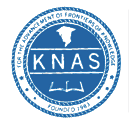Watch the video recording here
Background
In recognition of the ecological, cultural, and economic importance of grasslands and pastoralist systems, the United Nations General Assembly has declared 2026 the International Year of Rangelands and Pastoralists (IYRP). This presents a timely opportunity for the global scientific and policy community to highlight the vital role these ecosystems play in sustaining biodiversity, supporting rural livelihoods, and building resilience in the face of climate change.
Semi-natural grasslands are among the most species-rich ecosystems on earth, offering a unique example of how long-term, low-intensity human activities can enhance biodiversity. Their ecological function is closely linked to traditional management practices such as rotational grazing, transhumance, mowing and community stewardship. These practices have helped maintain open habitats, enhance soil health and preserve ecological balance. These landscapes also serve as significant carbon sinks, support diverse livelihoods, and are central to Indigenous and local knowledge systems. Yet today, grasslands are disappearing at an alarming rate across many regions. In some areas, abandonment and climate change are leading to shrub encroachment and forest succession; in others, intensification through fertilizers, monocultures and frequent mowing is causing biodiversity loss and ecosystem degradation.
As part of a broader collaboration between the InterAcademy Partnership, European Academies' Science Advisory Council and the Mongolian Academy of Sciences in the lead-up to the IYRP in 2026 and beyond, this webinar contributes to the growing global momentum by taking a comprehensive view of grasslands and showcasing the latest scientific and policy insights. The event will explore options for reversing current trends, including how regenerative management – rooted in both modern science and Indigenous knowledge – can offer a more sustainable future for people and the planet. It will convene interdisciplinary experts from around the world who will share perspectives from diverse policy and ecological contexts. The event will be recorded and summarized, in line with other sessions in the IAP Webinar Series.

Attendance Details:
- Date: Tuesday, 15 July 2025
- Time: 07:00-08:30 UTC; 09:00-10:30 CEST (Rome); 10:00-11:30 EAT (Nairobi); 15:00-16:30 PM ULAT (Ulaanbaatar). You will receive the time in your local time zone when you register.
- Platform: Virtual on Zoom
- Registration: All participants, including speakers, should register using this link.
Agenda and Speakers
Moderator: Thomas Elmqvist, EASAC Environment Programme Director and Prof. Stockholm Resilience Centre.
Ts.Bat-Oyun, Head of Agrometeorological Division, Information and Research Institute of Meteorology, Hydrology and Environment.
Dorothy A. Amwata, Associate Professor, Dean School of Agriculture and Environmental Sciences, Murang'a University of Technology, Kenya.
Valkó, Orsolya, DSc, Head of Scientific Secretariat, Scientific Advisor, HUN-REN Centre for Ecological Research, Institute of Ecology and Botany.
Joseph Moses Oleshangay, human rights lawyer and activist in Tanzania. Joseph has worked extensively on Maasai land rights particularly ongoing displacement of the Maasai in Ngorongoro and Loliondo which he represent Maasai in major cases in Tanzania and regional Courts. Oleshangay has received international recognition for his efforts, notably being awarded the 2023 Weimar Human Rights Prize which highlights his dedication to defending the fundamental rights of his people. Oleshangay has also held a Maasai title of a traditional leader since March 2024.
Watch the video recording here
Read more about the IAP Webinar Series here.



